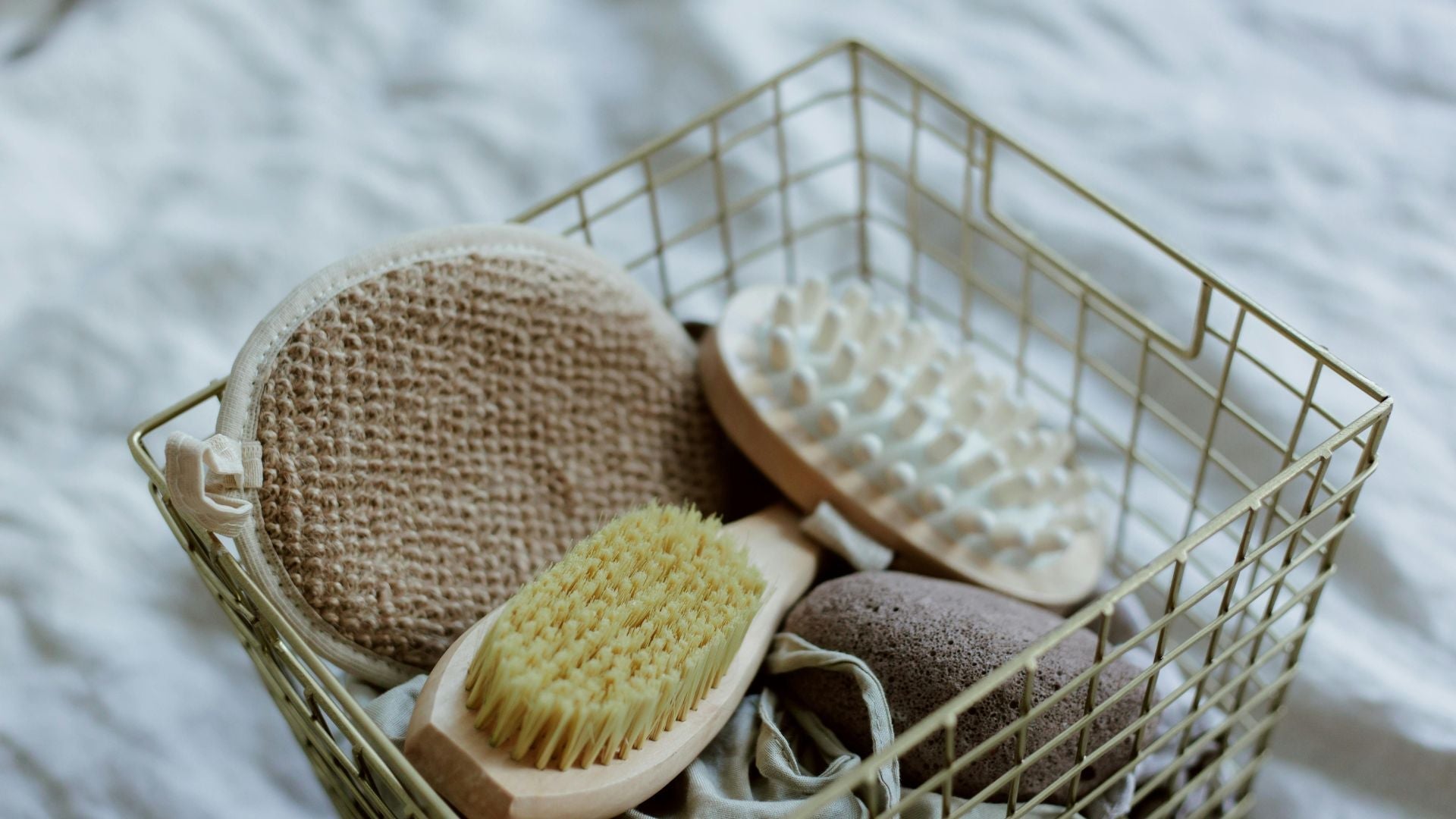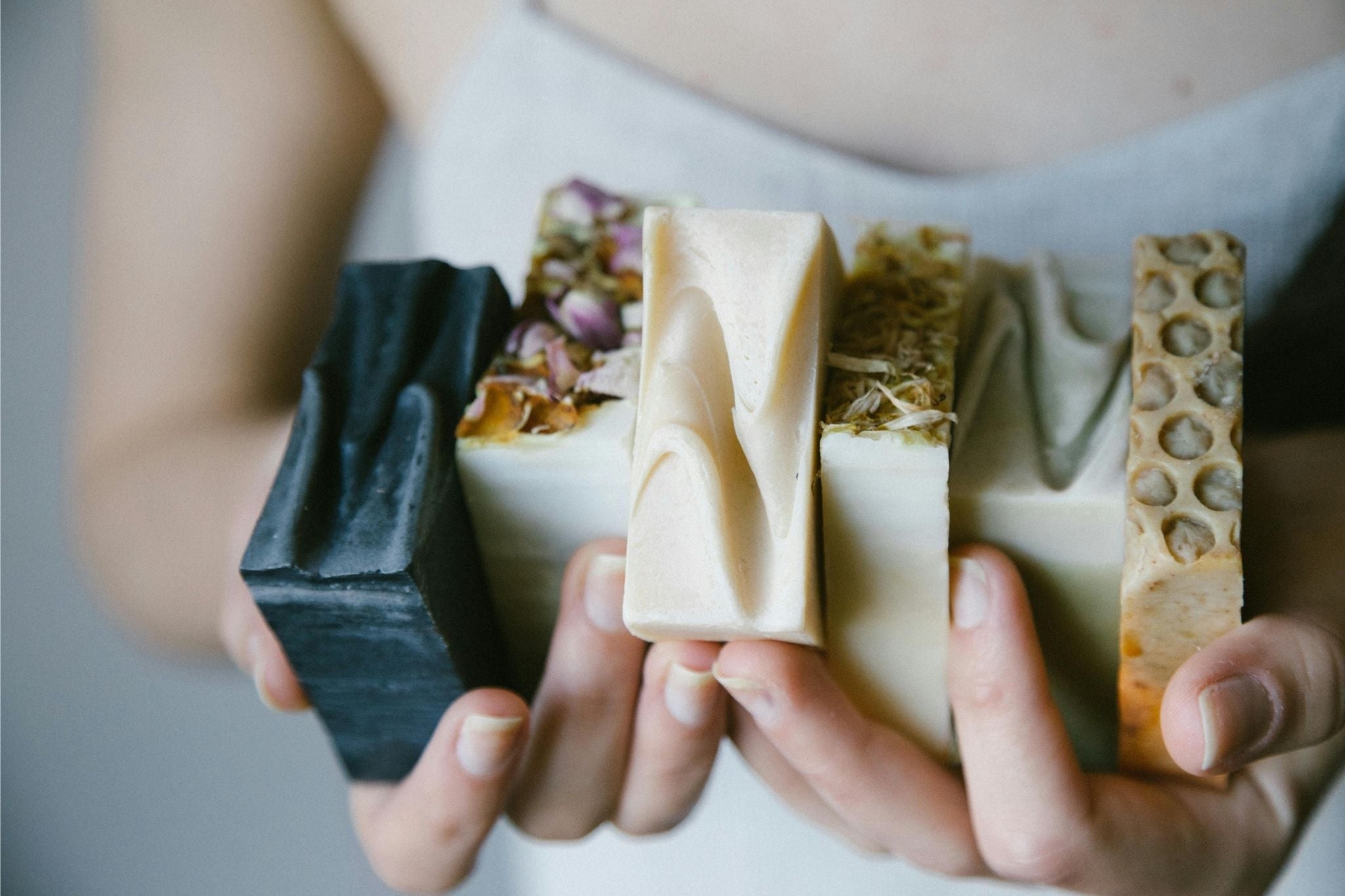Key Points
- Traditional toilet paper may contain harmful chemicals like chlorine, formaldehyde, PFAS, and BPA, which can irritate sensitive skin and pose health risks.
- Bamboo toilet paper offers a clean, hypoallergenic alternative, made without harsh chemicals, fragrances, or synthetic additives.
- ecoHiny’s bamboo toilet paper is tree-free and sustainably sourced, helping reduce deforestation while delivering softness, strength, and peace of mind.
Toilet paper is one household necessity that we tend to take for granted. We always have it at the ready and definitely don't want to go without! Because it's so ever-present in our homes, we often don't stop to consider just what exactly goes into its production.
We encourage everyone to opt for an eco-friendly toilet paper option, particularly because of traditional toilet paper's impact on our trees, but there are other factors to weigh as well.
Consumers looking to live a more sustainable lifestyle or anyone interested in knowing what substances and chemicals are in their household products can benefit from a closer look at traditional toilet paper.
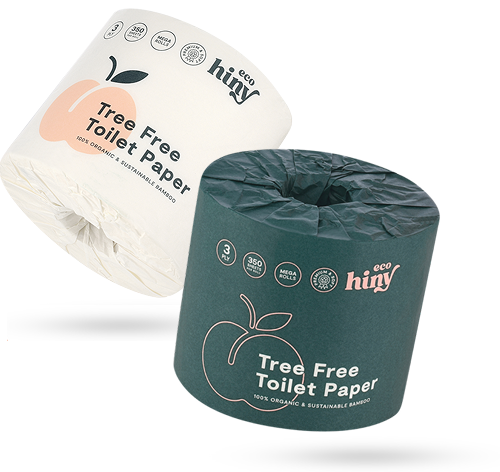
Hypoallergenic,BPA-Free, PFAS-Free, Elemental Chlorine-Free
ecoHiny's 3-ply bamboo toilet paper.
From $15.99
Harmful Impacts of Traditional Toilet Paper
Like many production practices, the manufacturing of traditional toilet paper is riddled with unhealthy and potentially harmful additives.
Wood pieces from harvested hardwood trees are cooked in chemicals to create the pulp that will be used to make the paper. That pulp is then washed and sent to a bleaching plant, where it undergoes several chemical processes in order to bleach the paper white.
Considering how much toilet paper we use, this process means a significant amount of chemicals and bleaching agents used regularly. The final product that makes its way to supermarket shelves and then into our homes contains traces of these chemicals used in production.
There could be a cocktail of chemicals lurking in your cabinets! Here's an overview of the substances that could be present in your current paper.
Elemental Chlorine is a toxic gas used to bleach wood pulp in paper products.
Furans and Dioxins are highly toxic chemicals that are a by-product of the chlorine bleaching process.
Formaldehyde is used to strengthen toilet paper when wet to prevent it from breaking down. It is a known carcinogen.
Petroleum-based mineral oils and paraffin are often added to toilet paper rolls to make them softer and smell better.
Fragrances present in scented toilet paper contain chemically derived fragrances or perfumes.
BPA, or bisphenol A, is a chemical used in the production of certain plastics, resins, and some paper products.
Per- and Polyfluoroalkyl Substances (PFAS) are another somewhat troubling substance said to be found in our toilet paper. PFAS are synthetic substances used in various consumer products. Per- and Polyfluoroalkyl Substances have even been linked to significant long-term health issues (1).
The significance of each of these substances is that they could mean anywhere from mild discomfort to an all-out infection, especially for those with sensitive skin. You might be surprised to hear that many issues people deal with "down there" are a result of wiping with traditional toilet paper.
Chemicals aren't the only consideration when it comes to traditional toilet paper. The environmental impact due to the deforestation that takes place during the harvesting of hardwood trees is significant. The traditional toilet paper industry makes incredible demands on our forested lands.
Whether you're an individual with sensitive skin who wants to maintain the best intimate personal health or an eco-conscious consumer looking to live a more sustainable life, switching to bamboo toilet paper makes the most sense.
Exploring Clean, Healthy Alternatives
Want to eliminate chemicals from wiping? Bamboo toilet paper allows you to do just that. It's your sustainable, tree-free option that boasts nothing but bamboo as its main ingredient.
Bamboo toilet paper gets off to a great start without any harsh chemicals because growing bamboo doesn't require using fertilizers or pesticides for it to thrive.
Also, those allergic reactions? It's unlikely to happen with bamboo. Bamboo is naturally hypoallergenic and antibacterial, which means it has properties to negate the growth of bacteria and is safe for those with allergies.
One of the best parts of bamboo is the stress it takes off our forests. Trees don't make an appearance in the making of bamboo toilet paper! With the environmental strain of losing 27,000 trees daily to frivolous flushing, this is a considerable perk. (2)
Making the Switch
At ecoHiny, we're all about encouraging sustainable switches! One of the easiest to make is bringing bamboo into your bathroom.
Because of its strength and softness, you won't miss out on any part of your current paper you love.
Transitioning from traditional toilet paper to bamboo toilet paper is a small but meaningful step towards sustainability! If you are planning to make the switch, here are some tips that can help:
- Start with a comparison of qualities. The highest level of comfort and durability comes with a three-ply composition. Also, check that any wrappers or packaging is biodegradable and recyclable.
- Consider the cost. Bamboo toilet paper may be slightly more expensive than traditional toilet paper. Often, you'll get a better price when buying bulk, or you can subscribe to save on bamboo toilet paper!
- Find a brand that is Forest Stewardship Council certified. Their certification system verifies sustainable sourcing of forest products and ecosystem services at every step of the value chain, from forest to consumer. (3)
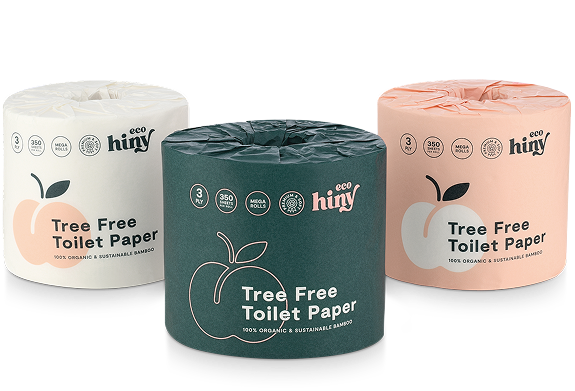
Hypoallergenic,BPA-Free, PFAS-Free, Elemental Chlorine-Free
ecoHiny's 3-ply bamboo toilet paper.
From $15.99
Experience ecoHiny's Bamboo Toilet Paper: It's Better
There are a host of reasons to consider switching from traditional toilet paper to a more eco-friendly option like ecoHiny.
EcoHIny's bamboo toilet paper is a sustainable and environmentally friendly option that is free from harsh chemicals, making it a healthier choice for you and your family. Unlike traditional toilet paper, bamboo toilet paper is hypoallergenic and antibacterial, reducing the risk of allergic reactions and infections.
Additionally, ecoHiny's bamboo toilet paper is soft and strong, ensuring that you won't miss out on the comfort and quality of your current paper.
By making the switch to ecoHiny's bamboo toilet paper, you'll be doing your part to protect the environment by reducing the number of trees that are cut down and helping to minimize the amount of waste that ends up in landfills.
If you're looking for a healthier, more sustainable, and eco-friendly toilet paper option, try ecoHiny's sustainable toilet paper today!
Source:
- "Our Current Understanding of the Human Health and Environmental Risks of PFAS." United States Environmental Protection Agency.
- Nelson, Thomas. "We Flush 27,000 Trees Every Day. It’s Possible To Live Without Toilet Paper Forever." Gasan, gasanature.org/we-flush-27000-trees-every-day-its-possible-to-live-without-toilet-paper-forever/.
- "How the FSC system works." Forest Stewardship Council, fsc.org/en/how-the-fsc-system-works.
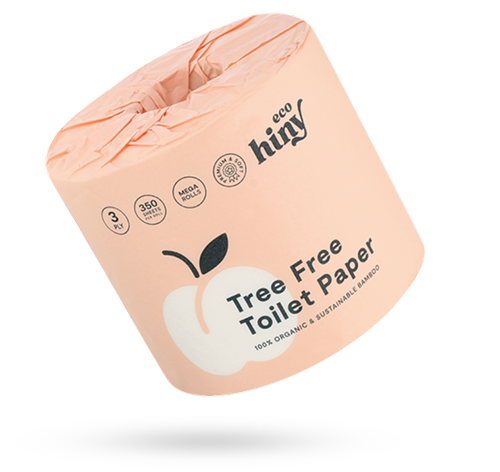
Hypoallergenic,BPA-Free, PFAS-Free, Elemental Chlorine-Free
ecoHiny's 3-ply bamboo toilet paper.
From $15.99

Hypoallergenic,BPA-Free, PFAS-Free, Elemental Chlorine-Free
ecoHiny's 3-ply bamboo toilet paper.
From $15.99



